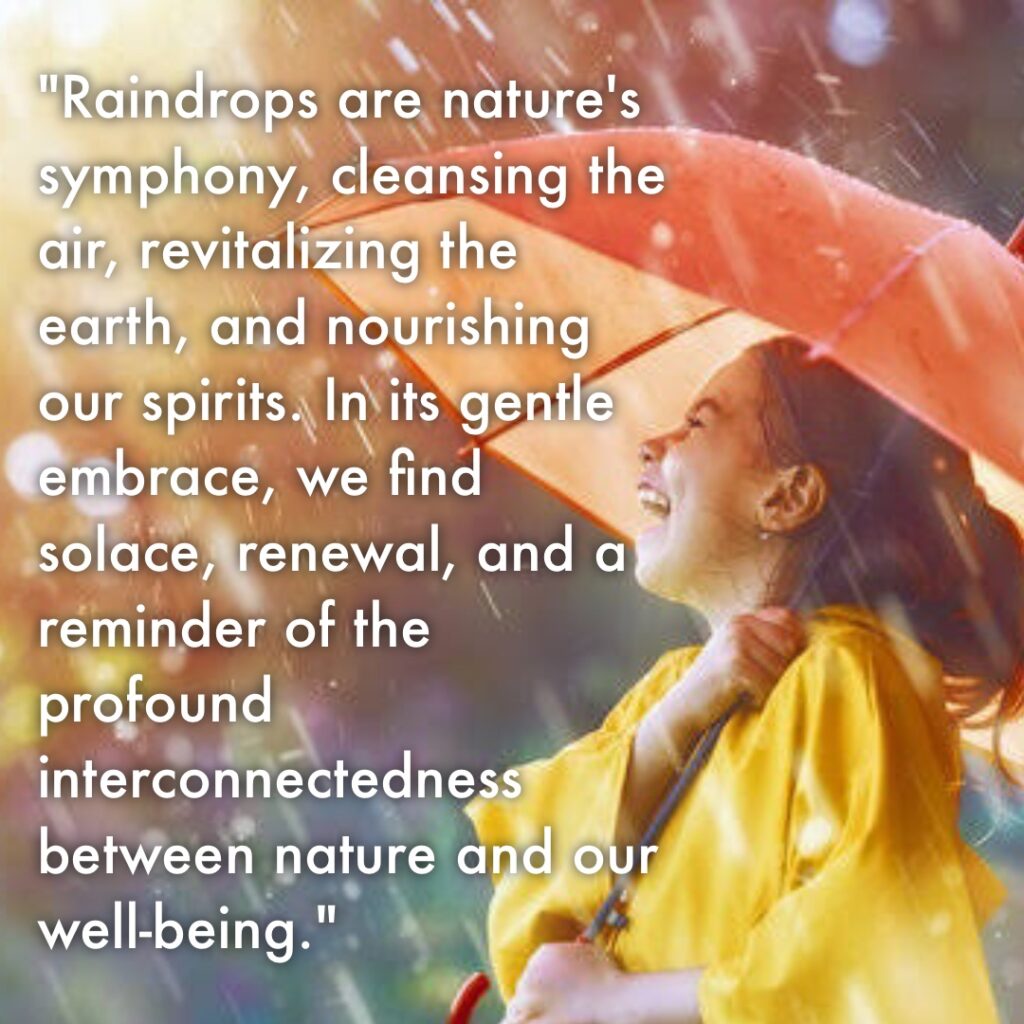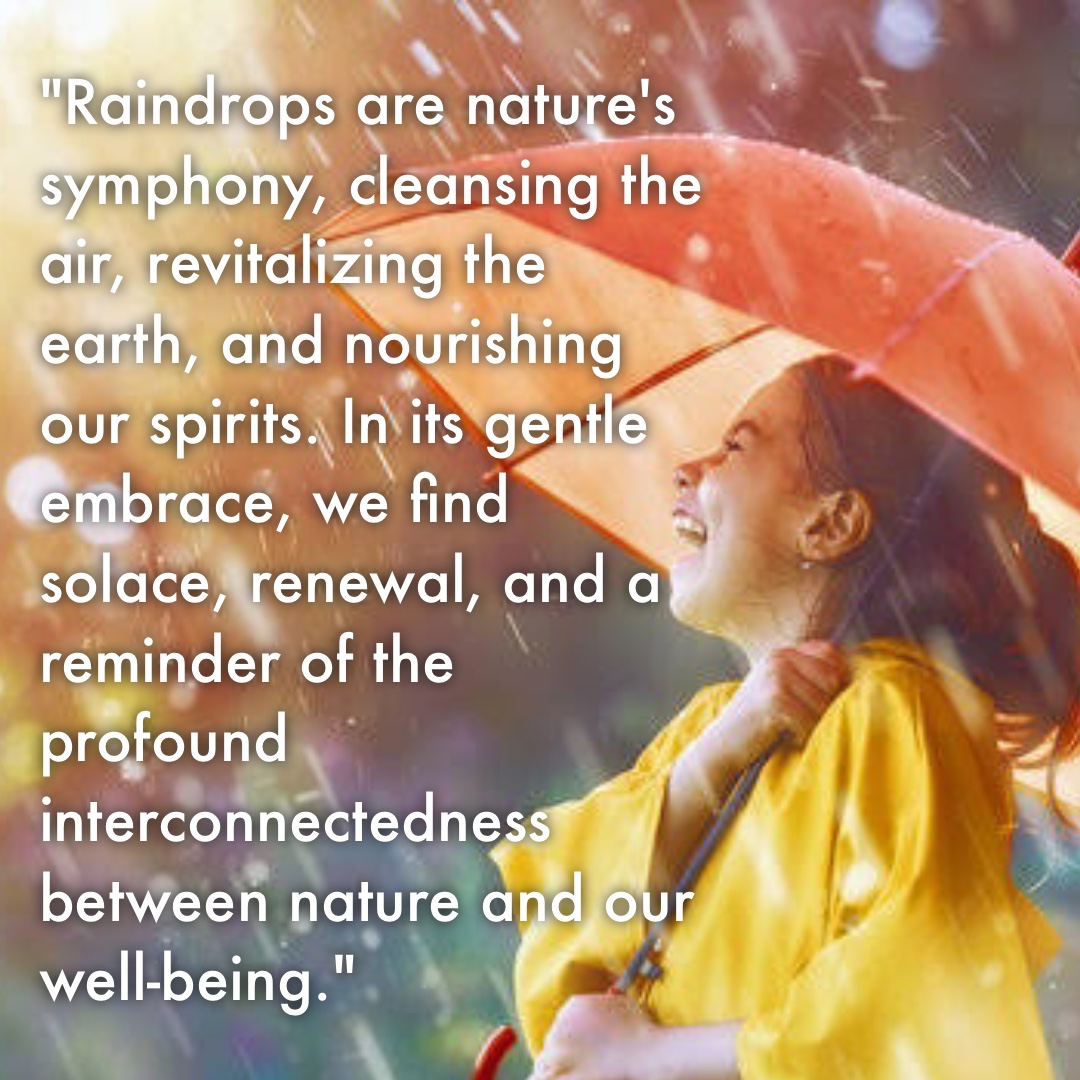The Wonderful Benefits of Rain on Health: Scientific Insights

Rainfall, a fundamental aspect of the Earth’s water cycle, not only nourishes the environment but also holds numerous benefits for human health. By examining rain’s impact from a scientific perspective, we can gain a deeper understanding of its wonderful effects on our well-being. In this article, we explore the remarkable benefits of rain and how it positively influences various aspects of our health.
- Improved Air Quality:
Rain plays a vital role in cleansing and purifying the atmosphere. As raindrops fall through the air, they act as natural scavengers, capturing and removing pollutants, dust particles, and allergens from the environment. This cleansing effect helps to improve air quality, especially in urban areas where pollution levels are typically higher. By reducing the concentration of airborne contaminants, rain contributes to healthier respiratory conditions for individuals, particularly those prone to asthma, allergies, or other respiratory disorders.
- Reduction of Allergens:
Rainfall provides relief for individuals suffering from seasonal allergies. When it rains, pollen and other airborne allergens get weighed down, making them less likely to be inhaled. This temporary decrease in allergen levels offers respite for those affected by allergic reactions, alleviating symptoms such as sneezing, itching, and congestion.
- Cooling and Temperature Regulation:
Rainfall acts as a natural cooling system, especially during hot and humid conditions. As rainwater evaporates from the ground and vegetation, it absorbs heat energy from the environment, resulting in a cooling effect. This temperature regulation provided by rain can prevent heat-related illnesses, including heatstroke and heat exhaustion. Additionally, rainy weather can create a more comfortable living environment by reducing high levels of humidity, which can contribute to discomfort and fatigue.
- Psychological Benefits:
The sound and sight of rain have been shown to have positive psychological effects on individuals. The rhythmic sound of raindrops falling can induce relaxation and tranquility, reducing stress levels and promoting a sense of calmness. The gentle patter of rain against windows or rooftops can also create a soothing ambiance that aids in sleep and enhances overall mental well-being. The psychological benefits of rain extend to the phenomenon known as “petrichor,” the pleasant earthy scent that arises when raindrops hit the ground. This distinctive aroma has been linked to increased mood, reduced anxiety, and improved emotional well-being.
Conclusion:
From air quality improvement to temperature regulation and psychological well-being, rain offers a range of remarkable benefits for human health. Its ability to cleanse the atmosphere, reduce allergens, cool the environment, and induce relaxation underscores the positive impact that rain has on our overall well-being. By appreciating these scientific insights, we can better understand and embrace the wonderful benefits that rain brings, ultimately leading to a healthier and more fulfilling life.





